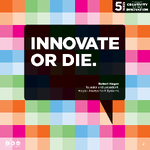 After analyzing the personality profiles of Homer’s Greek heroes, Achilles and Agamemnon, Rastislav Duriš, an HR consultant, and Matus Porubjak, a philosophy professor, asked the question, “In which occupations, organizations or environments would these heroes prosper today?”
After analyzing the personality profiles of Homer’s Greek heroes, Achilles and Agamemnon, Rastislav Duriš, an HR consultant, and Matus Porubjak, a philosophy professor, asked the question, “In which occupations, organizations or environments would these heroes prosper today?”
Career counselling for these two ancient heroes starts with their motivation (Motives, Values, Preferences Inventory). Achilles feels fulfilled by helping others, developing them and generally working for a prosperous society. He values material success, profit, ROI, trade and money, as well as traditional social values and virtues, morale, history and principled attitude towards life and work. His motives indicate that Achilles would be satisfied in a well-established organization with a clear mission, values and business purpose. The company should also be commercially oriented, such as a financial institution, and care about the satisfaction of its employees or customers. A good example would be a private bank with a long tradition of customer care and elaborate employee program.
Valuing commerce, finance and material success, Agamemnon, unlike Achilles, feels motivated by social status – the desire to stand out and get recognition – and desires influence and power. Self-sacrifice for others and helping society doesn’t really work for him. He is more likely to feel satisfied in environments that enable him to work on his individual career, achieve an important position, and gain credit as well as high financial remuneration. He would be happiest working in financial and insurance companies or private firms focused on profit and beating the competition.
The two share Hogan Personality Inventory (HPI) scores that are like those of successful entrepreneurs. Achilles and Agamemnon would be successful in launching companies and organizations (though probably not together as per the last blog in this series). Both have traits of leadership, though their disposition could be more suited for crisis management which involves time restrictions and often requires making unpopular decisions. It is important to note that their definitive success or failure would also be shaped by their ability to cope with their potential risky behavior indicated in the Hogan Development Survey (HDS). High scores in these assessments mean a raised flag for entrepreneurs and managers – “Beware! You have certain exceptional characteristics; however, if you don’t learn to handle them and use them constructively, they may contribute to your fall later.” Which, in the case of Achilles and Agamemnon, they did.
 What do Ron Johnson, Robert Nardelli, and Jack Griffin all have in common? All are smart, talented individuals who were hired to repair struggling companies and failed. Each shared a common thread: their ability to lead was undermined by a misalignment of values.
What do Ron Johnson, Robert Nardelli, and Jack Griffin all have in common? All are smart, talented individuals who were hired to repair struggling companies and failed. Each shared a common thread: their ability to lead was undermined by a misalignment of values.



 This axiom is all too relevant for entrepreneurs today. Companies like Google and Pixar embrace a collaborative and innovative culture with unconventional work hours and offices. Why do they go through such great lengths to foster their employees’ creativity? Because that’s what a creative employee’s personality demands.
This axiom is all too relevant for entrepreneurs today. Companies like Google and Pixar embrace a collaborative and innovative culture with unconventional work hours and offices. Why do they go through such great lengths to foster their employees’ creativity? Because that’s what a creative employee’s personality demands. After analyzing the personality profiles of Homer’s Greek heroes, Achilles and Agamemnon, Rastislav Duriš, an HR consultant, and Matus Porubjak, a philosophy professor, asked the question, “In which occupations, organizations or environments would these heroes prosper today?”
After analyzing the personality profiles of Homer’s Greek heroes, Achilles and Agamemnon, Rastislav Duriš, an HR consultant, and Matus Porubjak, a philosophy professor, asked the question, “In which occupations, organizations or environments would these heroes prosper today?” Developed in partnership by
Developed in partnership by  The Motives, Values, Preferences Inventory identifies the core goals, drivers, and interests that determine what gets people to the office each day. The MVPI consists of 10 primary scales, which are further divided into five item themes. The MVPI item themes provide additional interpretive power by categorizing participants’ responses to the questions that compose each MVPI scale.
The Motives, Values, Preferences Inventory identifies the core goals, drivers, and interests that determine what gets people to the office each day. The MVPI consists of 10 primary scales, which are further divided into five item themes. The MVPI item themes provide additional interpretive power by categorizing participants’ responses to the questions that compose each MVPI scale.